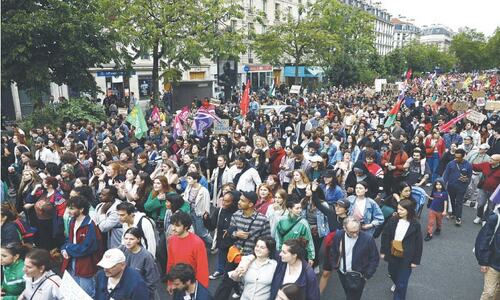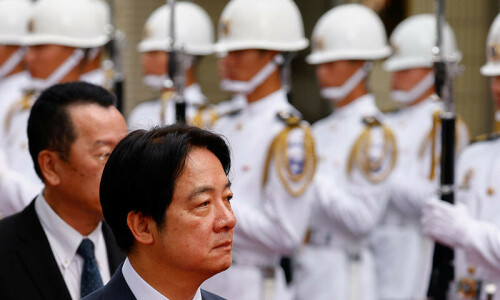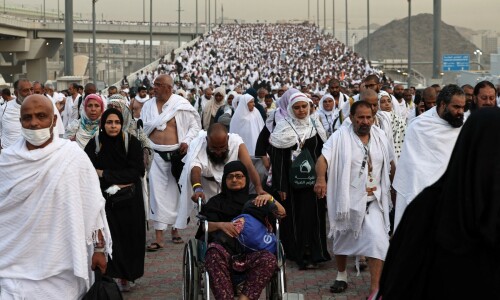 BEIRUT: This autumn May Chidiac was hosting her Sunday morning talk show on Lebanese television, a popular fixture on the Beirut political scene. She chatted with her guest, a newspaper journalist, about the latest crisis: a string of assassinations of prominent critics of Syria beginning with the murder of the former prime minister Rafik Hariri on St Valentine’s Day. The killings had almost brought the country to a halt. Chidiac was opinionated and had herself been a long-time critic of Syria, but she was not particularly worried for her safety.
BEIRUT: This autumn May Chidiac was hosting her Sunday morning talk show on Lebanese television, a popular fixture on the Beirut political scene. She chatted with her guest, a newspaper journalist, about the latest crisis: a string of assassinations of prominent critics of Syria beginning with the murder of the former prime minister Rafik Hariri on St Valentine’s Day. The killings had almost brought the country to a halt. Chidiac was opinionated and had herself been a long-time critic of Syria, but she was not particularly worried for her safety.
That evening, as she stepped into her Range Rover to drive home, a bomb detonated under her seat. It tore her car apart and threw her into the back. She was seriously injured, but just about alive and she crawled out of the wreckage. Doctors operated on her and she survived, but she suffered terrible burns across her body and lost half her left arm and most of her left leg. Now, several operations later, she is talking about going back to work.
“I want to show my face. I want to go back to work and express myself with freedom,” she said in hospital. She had not realised she was in any danger. “I didn’t think I was important enough to be targeted. I was not a politician. I was a journalist, and if they didn’t like what I said they could have answered me with words, not with bombs.”
Lebanon has had its share of problems since the civil war came to an end 15 years ago, but it has always had a lively press. There are dozens of rival newspapers and television stations. Most take an overtly political line but it has not been a dangerous place for journalists to work for years. Suddenly, after the Hariri killing, that changed. A prominent columnist and critic of Syria, Samir Kassir, was killed in June in a similar car bomb. Syria has been blamed for these attacks and its intelligence agencies have already been implicated in the Hariri murder. Many other anti-Syrian journalists quickly left the country.
Chidiac came from a Christian background. She had worked for more than 20 years for the Lebanese Broadcasting Company, a television channel set up by the Lebanese Forces, a Christian militia, during the civil war. But condemnation of her attack has crossed Lebanon’s sectarian divisions.
A powerful photograph appeared in the Lebanese press showing the current prime minister, Najib Mikati, a Sunni Muslim, standing at Chidiac’s hospital bed kissing her on the head.
Now she has flown to France for a programme of physiotherapy and to have a prosthetic leg and arm attached. “I am a little bit afraid of this,” she said before she went. “Sometimes I feel I have to start a new life. Until now I try to pretend that nothing happened and that when I put the new prosthesis on my leg and my hand I will be just the same as I was. But I know that’s not true. It’s just a way of helping me get through this.”
It will be months before she can think of working again, but she has still plans for a new political show. “We have to reach peace. If the killings continue they will lead nowhere. We need to forget about the difficulties we had in the past.”
—Dawn/The Guardian News Service













































Dear visitor, the comments section is undergoing an overhaul and will return soon.